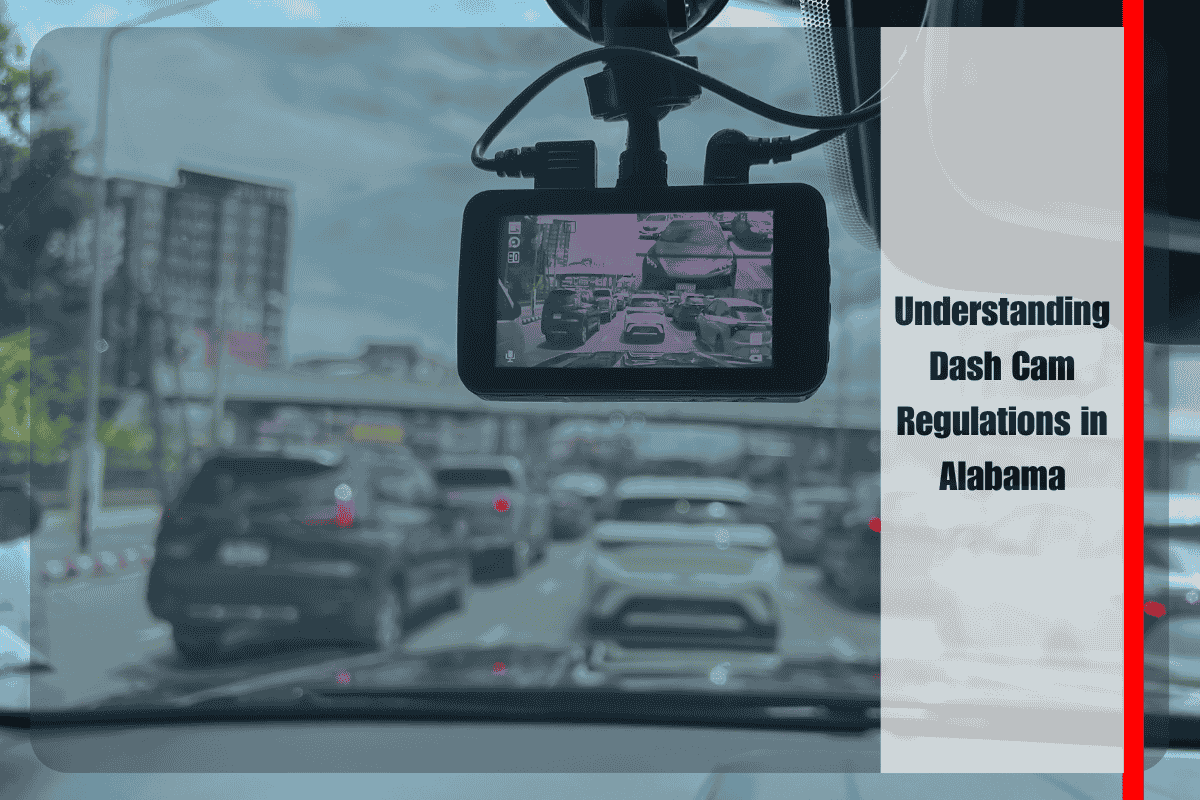In Alabama, dash cams are legal to use, but there are important restrictions on how and where they can be installed. Specifically, Alabama law prohibits mounting any device on the windshield that obstructs the driver’s clear view of the road. This means that suction-cup dash cams placed on the windshield are unlawful in Alabama. Instead, dash cams must be mounted on the dashboard in a manner that does not block the driver’s vision or interfere with driving safety.
Regarding audio recording, Alabama requires all-party consent to record conversations inside the vehicle. That means anyone whose voice is being recorded by the dash cam must consent to the recording to avoid violating privacy laws. Recording video in public spaces is allowed, but secret audio recording without consent could be illegal, especially if done on private property or in private conversations.
If you are involved in an accident or a traffic stop, police officers can request dash cam footage and even subpoena it if they believe it contains evidence of a crime. Refusing to comply with a court order to preserve or submit footage can lead to criminal penalties, including fines or jail time. Therefore, it is crucial to preserve any relevant dash cam recordings if subpoenaed or ordered by a court.
Dash cam footage is generally admissible in Alabama courts and can serve as critical evidence in civil and criminal cases involving accidents, fault, and insurance claims. However, the key is that the camera must be installed lawfully and the footage must be handled properly if used in legal proceedings.
To comply with Alabama dash cam regulations:
- Dash cams must be mounted on the dashboard, not on the windshield, to avoid obstructing the driver’s view.
- Audio recording requires all-party consent from those recorded inside the vehicle.
- Secret audio recording or video recording on private property without consent may violate privacy laws.
- Police or courts can subpoena dash cam footage, and compliance with preservation orders is legally required.
- Properly installed dash cams and footage are admissible and valuable as evidence in accident or criminal cases.
Following these rules ensures you use your dash cam legally and protect your rights while avoiding privacy violations or other legal pitfalls in Alabama.
Sources
[1] https://matrackinc.com/dash-cam-laws-by-states/
[2] https://www.salterferguson.com/alabama-dash-cam-laws/
[3] https://www.ddpai.com/blog/dash-cam-laws/
[4] https://www.expertmarket.com/dash-cams/dash-cam-laws-by-state
[5] https://www.blackboxmycar.com/pages/are-dash-cams-legal-in-my-area-dash-cam-laws-in-every-us-state












